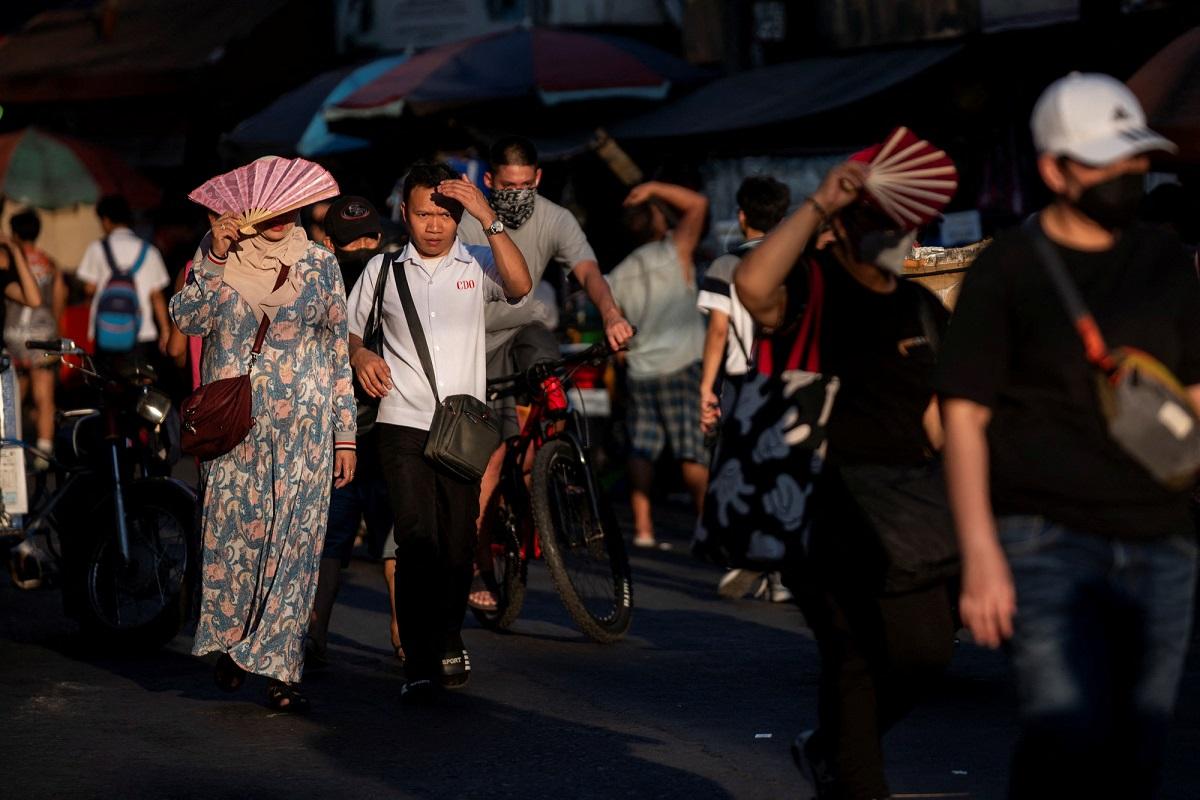Extreme heat in PH made worse by climate change - study

Climate change played a role in the hotter-than-normal days seen in various parts of Asia, including the Philippines, in April, a group of scientists said.
Guided by peer-reviewed methodologies, scientists from the World Weather Attribution examined how human-induced climate change affected the probability and severity of the extreme heat in West, South, and parts of Southeast Asia in April.
For the Philippines, the climate scientists analyzed the average daily maximum temperature for the period April 15 to 29, 2024, or 15 days.
''To estimate the influence that human-caused climate change has had on extreme heat in West Asia and the Philippines, we combine climate models with observations. Observations and models both show a strong increase in likelihood and intensity. In the Philippines, the change in likelihood is so large that the event would have been impossible without human-caused climate change. In West Asia, climate change increased the probability of the event by about a factor of 5,'' the World Weather Attribution study said.
''In terms of intensity, we estimate that a heatwave such as this one in West Asia is today about 1.7°C warmer than it would have been without the burning of fossil fuels. In the Philippines, the intensity increase due to human-induced climate change is about 1.2°C.''
In their study, the World Weather Attribution found that the Philippines may experience extreme heat once every 10 years when the El Niño weather phenomenon exists and once every 20 years when it does not.
The study also said the current El Niño made the heatwave in the Philippines ''about 0.2°C hotter.''
''If the world warms to 2°C above pre-industrial global mean temperatures, in both regions the likelihood of extreme heat would increase further, by a factor of 2 in West Asia and 5 over the Philippines, while the temperatures will become another 1°C hotter in West Asia and 0.7°C hotter in the Philippines,'' the scientists said.
Reacting to the study, Khevin Yu of the environmental group Greenpeace Philippines said the government ''must stop delaying the transition to renewable energy.''
''It must scrap its plans for fossil gas expansion and demand payment from the biggest climate-polluting companies most responsible for the crisis we’re suffering,'' he added.
Addressing current and future extreme weather events through climate adaptation and disaster risk reduction measures, Yu said, is ''not enough to ensure a safe and sustainable future for Filipinos.''
Meanwhile, state weather bureau PAGASA said "current warming has increasingly posed quite considerable challenges to man and the environment, and will continue to do so in the future.''
''The climate change scenarios outputs (projections) are an important step forward in improving our understanding of our complex climate, particularly in the future. These show how our local climate could change dramatically should the global community fail to act towards effectively reducing greenhouse gas emissions,'' PAGASA said. —Jiselle Anne Casucian/VBL, GMA Integrated News




